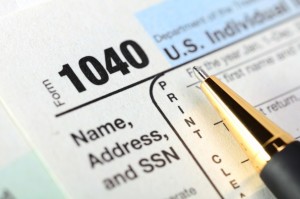 Today’s top story: What immigrants earn in each state and how much they send abroad. Also in the news: Steps to reach your savings goal, why you should tread carefully in the broker wars, and why your financial planner should be a fiduciary.
Today’s top story: What immigrants earn in each state and how much they send abroad. Also in the news: Steps to reach your savings goal, why you should tread carefully in the broker wars, and why your financial planner should be a fiduciary.
What Immigrants Earn in Each State and How Much They Send Abroad
The true numbers.
To Reach Your Savings Goals, Take These Steps
You can do it!
Tread carefully in broker wars
The consumer war isn’t a sideshow.
This Video Explains Why Your Financial Planner Should Be a Fiduciary
Rule changes.

 Today’s top story: How to lower your internet bills without cutting the cord. Also in the news: How to write a business plan, when it’s okay to splurge, and how to save money on groceries by keeping a food waste list.
Today’s top story: How to lower your internet bills without cutting the cord. Also in the news: How to write a business plan, when it’s okay to splurge, and how to save money on groceries by keeping a food waste list. Today’s top story: The Marriage Penalty could be the reason for the increase in your tax bill. Also in the news: Why credit card over-limit fees are virtually extinct, when you’re mad enough to switch banks, and a beginner’s guide to money management.
Today’s top story: The Marriage Penalty could be the reason for the increase in your tax bill. Also in the news: Why credit card over-limit fees are virtually extinct, when you’re mad enough to switch banks, and a beginner’s guide to money management.  Today’s top story: NerdWallet’s best credit card tips for March. Also in the news: Sane ways to pay down student debt, how to avoid a credit check scam while looking to rent, and how to save when you don’t have any extra cash.
Today’s top story: NerdWallet’s best credit card tips for March. Also in the news: Sane ways to pay down student debt, how to avoid a credit check scam while looking to rent, and how to save when you don’t have any extra cash.  Today’s top story: Managing your 401(k) in uncertain times. Also in the news: How the Alternative Minimum Tax works, how owning or selling a home affects your taxes, and the 10 biggest tax havens on earth.
Today’s top story: Managing your 401(k) in uncertain times. Also in the news: How the Alternative Minimum Tax works, how owning or selling a home affects your taxes, and the 10 biggest tax havens on earth.